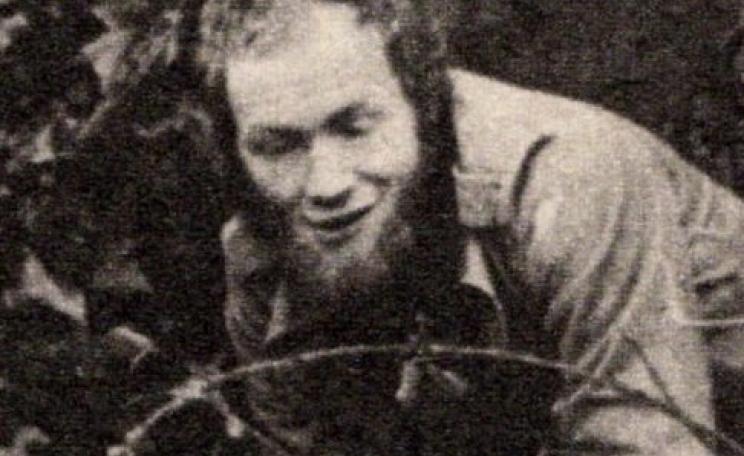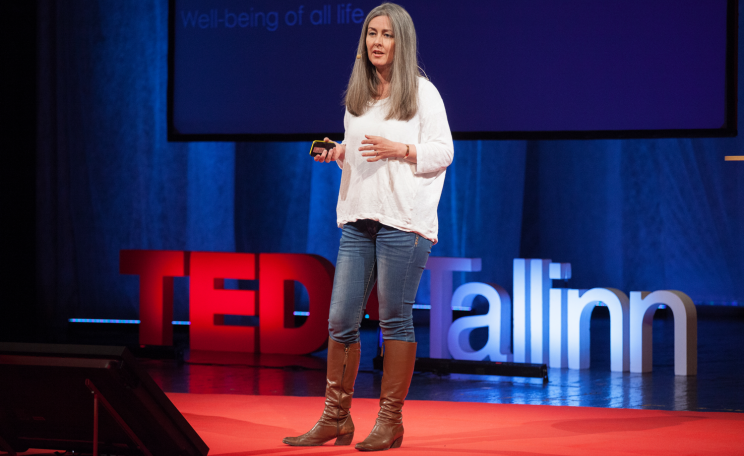Paiakan's personality emanated a great sense of dignity and steely determination.
I met the young Kayapo chief Paulinho Paiakan in London in 1988 where he had come at the invitation of London’s Gaia Foundation.
He had arrived from Brazil with his great friend, the ethnobiologist Darrell Posey. At the time Darrell and I were developing the storyline for a Channel 4 documentary, 'Jungle Pharmacy’, the purpose of which was to show the remarkable knowledge of medicinal remedies held by the cultures of Amazonian indigenous communities.
Paiakan had recently returned from giving a speech at the World Bank in Washington. He was the first Indigenous leader from the Amazon to travel abroad and to speak out against World Bank funding for a major dam project. At that time, he doubtlessly helped to change World Bank policy on funding large dams in ecologically sensitive areas.
Determination
Paiakan's personality emanated a great sense of dignity and steely determination. He was wearing a feather headdress but he wore western clothes. He had come to talk to us about the threats to the ancient culture of his people from incursions by loggers and gold miners on Kayapo territory.
But, again, he was particularly focussed on the threat to his people from the Kararao dam project on the Xingu river which, if built, would inundate vast tracts of land inhabited by the Kayapo, the Arara and other tribes.
Darrell Posey was able to tell us that Paiakan had also been instrumental in having the right of self-determination for Indigenous peoples and their territories enshrined in Brazil’s 1988 Constitution.
In 1989 I met Paiakan once again, but this time on his home turf. With other Indigenous leaders, such as Kayapo chief Raoni, he had decided to stage a major event to draw attention to the destruction of the rainforest, and the havoc that could be caused by the dam to the region’s rich biodiversity, as well as the traditional forest cultures.
Paiakan's personality emanated a great sense of dignity and steely determination.
The Altamira Gathering brought together 700 people from indigenous communities and hundreds of journalists and NGO representatives from Brazil, and from north America and Europe.
Death
The gathering was held in a sports stadium of the small town of Altamira, on the Xingu river south of Belem, and went on for four days. Anita Roddick, of the Body Shop, had paid for boats, trucks, buses and plain tickets for Indigenous groups to attend the meeting. The event was widely reported in the international press and I made a 20-minute news documentary for Channel 4.
Paiakan powerful oratory doubtlessly contributed to the cancellation of the dam project at that time. Only in the last eight years has it been revived and implemented by the Brazilian government in a scaled down version under the name Belo Monte dam, much to the consternation of the local tribespeople.
After the Altamira gathering, I had not heard or read anything about Paiakan again until the first day of the UN Rio Earth Summit in 1992 when his picture was splashed all over the covers of the weekly illustrated Veja magazine and the title read, The Savage.
He was accused of raping an 18-year-old woman, and four years later was convicted to six years imprisonment. This was widely regarded as a political trial and the sentence was subsequently reduced to two years house arrest in a Kayapo village.
Paiakan spent the last 25 years mostly secluded in the small Rio Vermelho village community, an isolated spot in the Kayapo reservation, with occasional excursions to the nearby town of Redencao and to Belem. He was revered as a great leader of the Amazonian tribes, and in 2016 he was elected president of FEPIPA, the Federation of Indigenous Peoples of the state of Pará.
Paiakan will be remembered as one of the first Brazilian Indigenous leaders to make his mark on a world stage. Others have since followed in his footsteps.
Sadly, many Indigenous leaders are exposed to Covid-19 due to unwanted contacts with loggers, miners and ranchers invading indigenous territories, encouraged by the Bolsonaro government. Paiakan died in an ill-equipped hospital in Redensao, as one of over 300 indigenous people who had contracted Covid-19 by the end of June.
This Author
Professor Herbert Girardet is a prolific author, environment consultant and former filmmaker. He is a trustee of the Resurgence Trust (which owns and publishes The Ecologist), co-founder of the World Future Council and member of the Club of Rome.
Image: Jamanxim River from the air. Ibama, Wikipedia.







